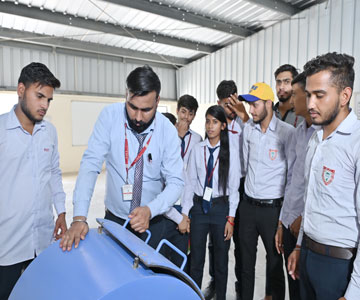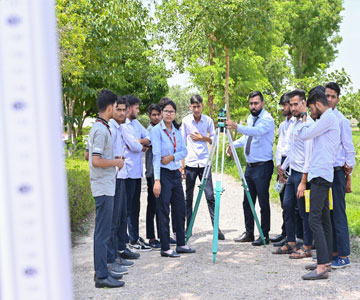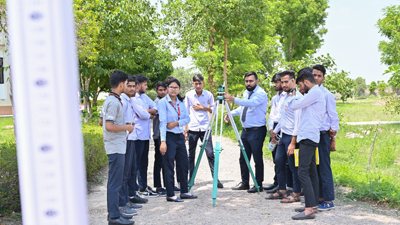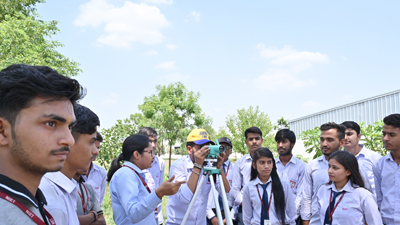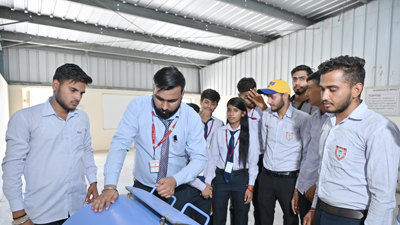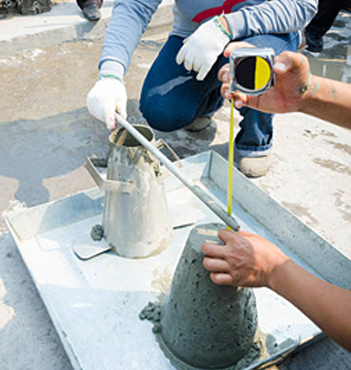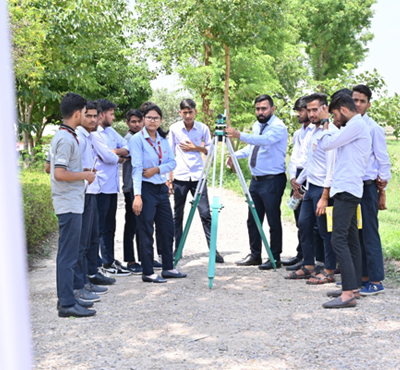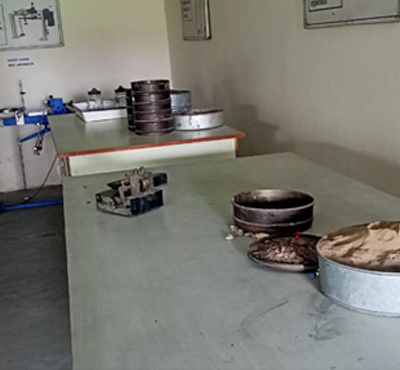Concrete Technology Lab
The objective of concrete laboratory is to determine the physical properties of building construction materials like cement, fine and coarse aggregate..
It covers the qualities of concrete required in building applications, such as performance and toughness, and makes recommendations on all elements of concrete, from design mix through batching, mixing, shipping, placing, solidifying, and curing
The information regarding various properties of concrete in its plastic stage as well as hardened Stage is necessary to enable the engineer for quality control during construction work. Knowledge of the subject is essential for the Design of Concrete Structures
To identify and comprehend ideas connected to concrete technology, which includes the various types and properties of concrete as well as various adhesive materials and their critical application in the construction of safe and cost-effective structures.








